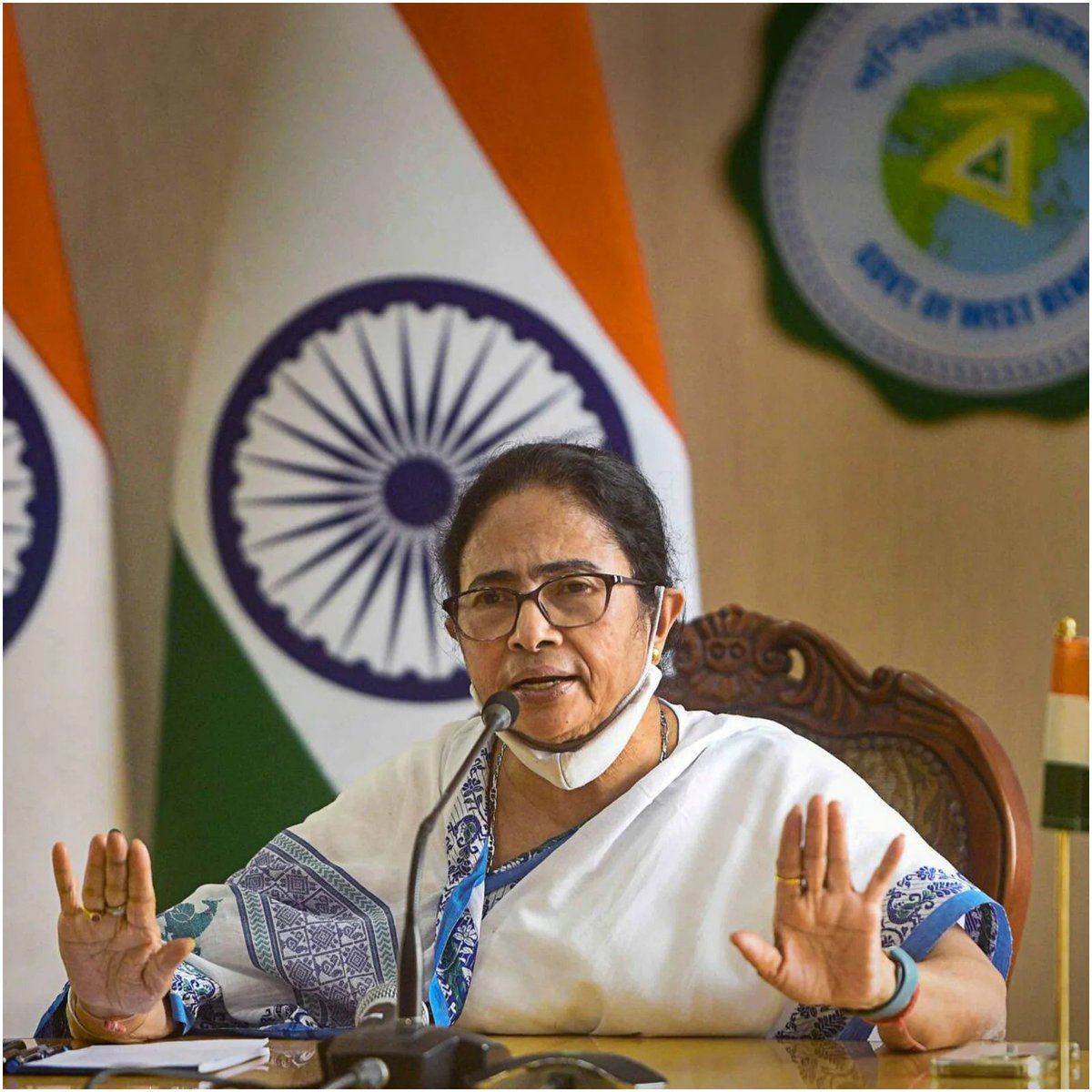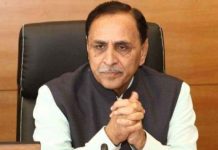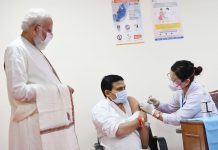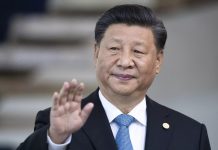
The opposition parties are upset over the shift in stance of Bengal CM Mamata Banerjee, who has surprisingly given a ‘clean chit’ to PM Narendra Modi over the raids on her own party leaders and is also showing unduly softer approach towards the RSS. A report by Mudit Mathur
The opposition parties are upset over the shift in stance of Bengal Tigress Mamata Banerjee who has surprisingly given a ‘clean chit’ to Prime Minister Narendra Modi over the raids on her own party leaders and is also showing unduly softer approach towards the Rashtriya SwayamSevak Sangh (RSS). Mamata, who emerged on national scene last year as a glue for the opposition unity after Prime Minister Narendra Modi and Home Minister Amit Shah faced humiliating defeat in high voltage acrimonious and no-holds-barred election in West Bengal.
Mamata’s remarks have come when Congress leader Rahul Gandhi is leading his Bharat Jodo Yatra and drawing overwhelming public response. Arvind Kejriwal is going to challenge PM Modi on his home turf Gujarat where Assembly elections will take place by the year-end. JDU’s Nitish Kumar and K Chandrashekar Rao of the TRS are working hard to unite anti-BJP forces. BSP Supremo Mayawati in UP has also started attacking BJP and Samajwadi Party chief Akhilesh Yadav for his inability to play an active role as leader of the opposition. Lalu Prasad Yadav and Nitish Kumar are planning to meet Sonia Gandhi to rope in Congress in the wider opposition unity keeping in view potential threat posed by BJP to democracy, plurality, constitutional institutions and ethos of the nation.
So, what’s behind the ‘clean chit’ of sorts for PM Modi from Mamata Banerjee, who was projecting herself as the rallying point of opposition unity? Or her softer stance on the RSS? Among many conspiracy theories, the popular perception is that she fears that what recently happened in Maharashtra could be repeated in West Bengal too or that escalating pressure from various probe agencies can take her near and dear into its firm grip.
That the replay of Maharashtra like episode is a conceivable political proposition was hinted by the actor-tuned- BJP leader Mithun Chakraborty, who had revealed in July last that 38 TMC leaders were in touch with his party. CM Banerjee denied any dissent in the party but inner pressures compelled her to go for a cabinet rejig. Despite that, her inner party troubles are not yet over. Earlier, Mamata expressed apprehensions about BJP’s plan to put most of TMC leaders behind the bars before 2024 elections.
Thus, the West Bengal government is really battling a deep crisis after the ED arrested the then minister Partha Chatterjee in an alleged money laundering case linked to a school jobs scam in Bengal. She had sacked him and also her education minister Paresh Adhikari. Cash valuing Rs.50 crore and jewellery of Rs.4.5 crore were seized from the residence of Chatterjee’s aide during raids by ED and fixed deposits valuing Rs.16.97 crore were recovered from the relatives of Anubrata Mondal by the Central Bureau of Investigation. Many other TMC leaders are also under the scanner of central probe agencies. Mamata’s nephew and heir, Abhishek Banerjee, is facing ED heat in a coal smuggling case that could lead to his detention.
Responding to Mamata’s ‘clean chit’ to PM Modi, the Leader of the Opposition, Suvendu Adhikari said, “The saffron party and the prime minister do not need validation from her and her remarks are meant only a ploy to protect her and her party.” After Maharashtra, he hinted at a similar fate awaiting the West Bengal government too. Adhikari’s remarks came in the assembly where the ruling TMC passed a resolution against what it said was the “partial role of CBI, ED, IT and other central agencies”.
During the debate on this motion, Banerjee said, “I don’t believe the Prime Minister is doing all this (misusing the agencies). CBI and ED are not under him…All are under Home Ministry…all is being done by BJP leaders.” “Businessmen are leaving the country and running away. They are running away because of fear and misuse of ED and CBI. I don’t believe Modi is getting this done,” she added.
Targeting the BJP, Mamata said, “They (BJP) are more than dictators, more than Hitler, more than Stalin, more than Mussolini and more than what not… If the agencies raid the homes of BJP leaders, they will find piles of currency.” “The Prime Minister must look into the excesses of Central agencies,” she urged.
Mamata was visibly upset with the kind of pressure the central investigating agencies had brought upon her close aides and after July she mellow downed her roars against prime minister Narendra Modi after meeting the chief minister of Assam, Himanta Biswa Sarma, the state where rebel Maharashtra MLAs had camped during Shinde’s stunning coup to take the reins of Maharashtra with pro-Hindutva posture. In July, she had a one-on-one meeting with Prime Minister Narendra Modi and also attended a meeting of Niti Aayog chaired by the PM.
The Congress party had supported the joint presidential candidate proposed by her but she did not support Congress nominee Margaret Alva for vice presidential poll and opted to abstain from voting against Jagdeep Dhankhar with whom she had bitter relations when he was the Governor of West Bengal. Subsequently, the West Bengal government also joined hands with Gautam Adani and Mukesh Ambani’s corporates. She sought to justify her decision by saying that politics and industry should not be mixed and that the state’s growth was her priority. Her credibility to fight for larger opposition unity has been marred with her conspicuous actions.
The Congress leader in Lok Sabha, Adhir Ranjan Chowdhury said, “Mamata is trying to broker peace between her party and the PM as she feels cornered. Everyone knows why she is doing this. The ruling party is under fire from the central agencies probing several corruption cases on the direction of the court.” “Mamata Banerjee’s clean image has been destroyed. Mamata is now trembling in fear,” Chowdhury further said, adding that Banerjee’s proximity to the BJP and RSS is a known fact as her party was once part of the NDA.
Communist Party of India (Marxist) central committee member Sujan Chakraborty said that Banerjee’s association with the BJP and RSS goes back to 1998, when her party was founded. Her party is an “offshoot of RSS,” alleged Chakraborty. “People are upset as they do not know the internal mechanisms of the TMC and the BJP at play over here. We are not upset as we have prior knowledge of this,” Chakraborty further disclosed.
A recent analysis revealed by a prominent English daily stated that of the 72 political leaders who came under the CBI lens between 2004 and 2014, 43 (60 percent) of them were from the Opposition. On the other hand, 124 prominent leaders have come under the CBI scanner in the eight years of NDA rule since 2014. At least 118 of them are from the Opposition, constituting 95 percent of the tally.
Prominent leaders from the Opposition who are under the CBI’s radar under the NDA rule include 30 leaders from the TMC, 26 from Congress, 10 from RJD and BJD each, six from YSRCP, five each from BSP and TDP, four each from AAP, AIADMK, SP and CPM, three from NCP, two each from NC and DMK and one each from PDP and TRS besides an Independent.
The CBI, under the NDA, has probed key Congress politicians and their relatives such as party president Sonia Gandhi, Rajasthan Chief Minister Ashok Gehlot, former Madhya Pradesh Chief Minister Kamal Nath and former Punjab Chief Minister Captain Amarinder Singh.
As far as action against Opposition leaders under UPA rule is concerned, the BJP topped the list of parties with 12 cases faced by its leaders. Prominent names on this list of NDA leaders included then Gujarat minister Amit Shah, former Karnataka Chief Minister B S Yediyurappa; Bellary mining baron Gali Janardhan Reddy, former Defence Minister George Fernandes and former Information and Broadcasting minister Pramod Mahajan.
The list of politicians facing the Enforcement Directorate (ED) is just similar to the CBI. Since 2014 out of 121 ongoing cases BJP leaders are facing just six cases. The party-wise break-up of the Opposition in the ED’s net since 2014 reflect Congress (24), TMC (19), NCP (11), Shiv Sena (8), six each of DMK and BJD, five each of RJD, BSP, SP and TDP, three each of AAP, INLD and YSRCP, two each of CPM, NC and PDP, two Independents, and one each of AIADMK, MNS, SBSP and TRS.
Congress president Sonia Gandhi and Rahul Gandhi are facing an ED probe in the National Herald case after a Delhi court took cognizance of a private complaint by BJP’s Subramanian Swamy. The agency was the first to raid a company associated with Sonia Gandhi’s son-in-law Robert Vadra, questioning him multiple times in a money laundering case. Former finance minister P Chidambaram and his son Karti, relatives and family members of key Congress politicians, including Kamal Nath, Rajasthan CM Ashok Gehlot’s brother, Agrasen, Capt.Amarinder Singh have also faced investigations.
The NCP leaders Sharad Pawar, Ajit Pawar, Anil Deshmukh, Nawab Malik and Praful Patel; Shiv Sena leaders Sanjay Raut and Anil Parab; and, former Bihar CM Lalu Prasad Yadav and his family, Kerala CPI(M) leader Kodiyeri Balakrishnan’s son are also under ED scanner. TMC politicians, including West Bengal Chief Minister Mamata Banerjee’s nephew Abhishek Banerjee too are facing serious probes relating to various scams tarnishing the political image of Mamata Banerjee.
The BJP has shown in Maharashtra how it acquired capabilities to topple the democratically elected government of Shiv Sena-led alliance by engineering defections through alleged misuse of ED and CBI. Goa also saw similar political adventure. Jharkhand also experienced tremors. Assam Chief Minister Himanta Biswa Sarma found impunity from probes after defecting to BJP from Congress.
However, Bihar chief minister Nitish Kumar was outsmarted the saffron party who sensed the game plan of poaching its leaders and successfully saved his government by switching sides with the support of Tejashwi Yadav of Rashtriya Janata Dal, founded by his father Lalu Prasad Yadav, a bête noire of PM Modi. Now both have come together to forge a larger alliance of opposition parties in the name of saving the nation and democracy in India.
In a first public rally of BJP post-split with Nitish in Purnia district of Bihar, the stalwart poll strategist of the BJP and Home Minister, Amit Shah,attacked Nitish and Lalu calling Nitish “a habitual betrayer.” “Nitish pursued the politics of “swaarth aur satta (self-interest and power), Lalu has joined his government and Nitish Kumar is sitting in the lap of Lalu,” he sarcastically remarked.
“There is an atmosphere of fear. I have come to tell you that Seemavarti districts are part of India and nobody needs to be afraid. There are fears among people. You have no reason to fear as there is the Narendra Modi government at the top. Nobody can dare do manmaani (excesses),” Shah assured. Shah targeted those areas where Asaduddin Owaisi of All India Majlis-e-Ittehadul Muslimeen (AIMIM) badly damaged RJD prospects.
The BJP could not build up its own stronghold in Bihar due to lack of political awareness among its people and now bank on small party like Lok Janshakti Party (LJP) of Chirag Paswan who has weak organisational strength.
The reverberations of Congress leader Rahul Gandhi’s “Bharat Jodo Yatra” has accelerated realignment process across political spectrum as parties reposition themselves for 2024 general elections. The decision of Gandhi family to keep out of the race for the party presidentship in upcoming organisational elections have caused discomfiture among the rank and file of the saffron brigade whose campaign on dynasty plank against the Congress has been rendered meaningless now.
It reflected in a fresh outreach of saffron camp when RSS chief Mohan Bhagwat met Imam Umer Ahmed Ilyasi, the chief cleric of the All India Imam Organisation and other Muslim intellectuals including former Delhi Lieutenant-Governor Najeeb Jung, former Chief Election Commissioner S.Y. Quraishi, former Aligarh Muslim University Vice-Chancellor Lt Gen Zameer Uddin Shah (retd.), Rashtriya Lok Dal national vice-president Shahid Siddiqui and businessman Saeed Shervani in Delhi. The 75-minute meeting was said to be aimed at exploring ways to foster brotherhood and promote the theme of religious inclusivity.
Portraying Bharat Jodo Yatra as an ideological struggle against the RSS-BJP, Rahul Gandhi said, “Millions were now involved in the programme to try and unite the country.” “Divided and hateful India is unacceptable. An India where youngsters don’t get jobs is not acceptable. An India where the poor are drowned in high prices is not acceptable,” he asserted. “The most important thing today, more than 2024, is Bharat ko toda ja rahah ai, nafrat failayi ja rahi hai (India is being disintegrated, hate is being spread). This is unacceptable—that is our main message,” he emphasised.
“I am clear that my goal is to put it across to the people of India that the hatred, violence and arrogance now visible in India are not good for the country. This country has a tradition of humility, compassion and non-violence. That’s the true India. We are not going to accept an India that is divided, hateful,” Rahul said in his press conference even as he evaded questions with regard to his decision to not contest the Congress presidential poll.
Rahul Gandhi’s interaction with the masses sends signals of Congress’s revival which may be more cause of concern for the regional parties who came to power due to desertion of Congress voters base after demolition of Babri Mosque and post Mandal politics of India. The clear picture of the 2024 Lok Sabha election would depend on how regional parties strategize together to pose a collective challenge to the might of Modi-Shah duo, amid a series of raids aimed at discrediting leaders belonging to opposition parties.












